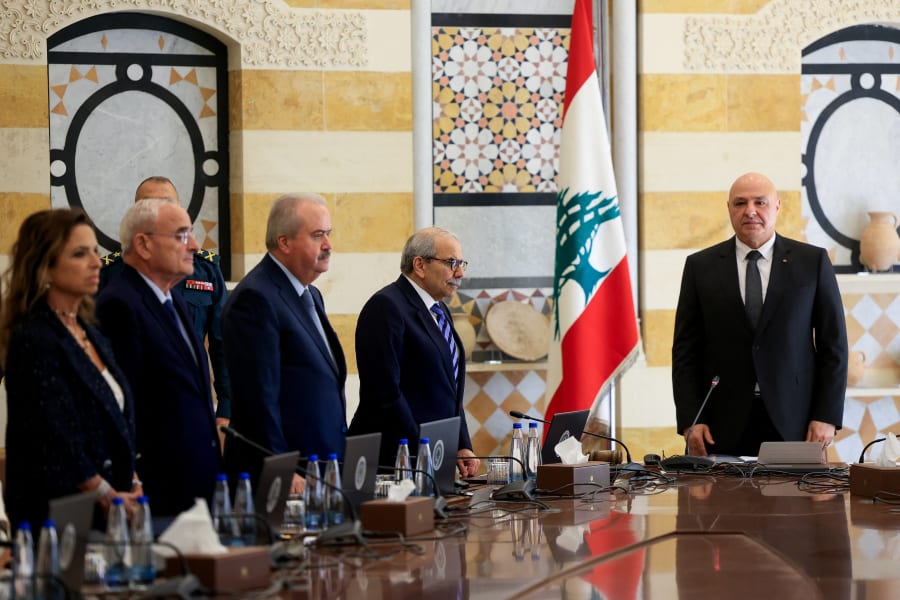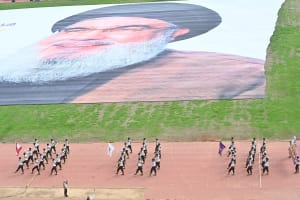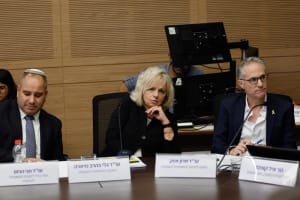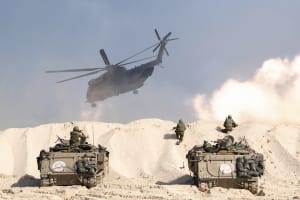After Gaza ceasefire, will Lebanon sign the next deal? US says ‘time is now’ but warns Hezbollah disarmament is imperative
US envoy Barrack blasts Lebanese gov’t: ‘Rhetoric does not match reality’

After the purported end of the Gaza War, focus is shifting to Israel’s other, still active fronts of the war.
In Lebanon, the political process aiming to disarm Hezbollah still hasn’t borne fruit, hampering President Joseph Aoun’s apparent willingness to conduct negotiations with Israel over security arrangements.
U.S. envoy Tom Barrack, meanwhile, warned on Monday that Beirut can’t continue to hesitate as “Israel may act unilaterally – and the consequences would be grave.”
The Saudi channel Al-Hadath reported on Sunday that, during President Aoun’s recent visit to New York, Lebanon received a new American proposal for the handing over of Hezbollah’s weapons, adding that it is “being discussed at the highest levels.”
Aoun’s government announced it had instructed the Lebanese Army to begin the process of disarmament, however, on the ground, nothing much has changed. Meanwhile, Israel continues to strike Hezbollah’s weapon depots, as well as targeting the attempts to restore its capabilities.
The report by Al-Hadath added that “several options related to the weapons are being examined, and Hezbollah is open to discussing them. Hezbollah will seek guarantees from Arab states at the next stage in order to hand over its weapons. Hezbollah is convinced that the ‘doctrine of fighting’ for Palestine has ended. The end of the Gaza war will increase pressure on Lebanon, Iraq and Iran to move toward peace.”
Aoun has hinted at his readiness to engage with Israel several times but Hezbollah, as well as members of his own government, have opposed him.
Last week, Aoun noted that “through dialogue and negotiations, the form of which will be determined at the appropriate time, solutions can be reached,” emphasizing that “Lebanon cannot remain outside the course of resolving the region’s crises.”
However, he also stressed that Israel’s “military actions must stop so that a path of negotiations can begin.”
Ali Fayyad, Hezbollah’s representative in the Lebanese parliament, told the Al-Mayadeen outlet on Saturday, “We reject any channel of negotiations with the occupation that is not an indirect military negotiation, like what was done for the maritime border. Lebanon is not ready for normalization, and security agreements with the Israeli occupation cannot be established. We and our allies will reject any direct negotiations with the occupation and will confront it.”
Dr. Jacques Neriah, a senior researcher at the Jerusalem Center for Public Affairs, estimates that Aoun is trying to bypass Hezbollah without confronting it directly – “this is tactical peace, not ideological,” he said.
He explained that Aoun is trying to signal his willingness to join the circle of peace with Israel to get U.S. support for switching the order of business, so that Israel must first withdraw from the five hills it still holds in the south, and this would then deprive Hezbollah of the justification for holding its weapons.
However, Neriah cautioned, “Hezbollah understands the trap very well. Its weapons were never meant only to fight Israel – but to ensure Lebanon’s transformation into part of the Islamic Republic of Iran.”
Opposition to direct talks with Israel also comes from within the Lebanese government. Lebanon’s foreign minister, Youssef Rajji, said last week, “Lebanon rejects direct negotiations. The engagements must be limited to resolving the problematic points on the border, in order to preserve national and sovereign principles. That was also the president’s intention.”
A Personal Perspective – Syria and Lebanon Are the Next Pieces for Levant Peace
— Ambassador Tom Barrack (@USAMBTurkiye) October 20, 2025
By Ambassador Tom Barrack
October 13, 2025, will be remembered as a defining moment in modern Middle Eastern diplomacy. In Sharm el-Sheikh, world leaders did more than celebrate the release of…
The American Ambassador to Turkey, Tom Barrack, has served as the American envoy to Lebanon and Syria.
In a long, harshly worded post to X that he published on Monday, Barrack reiterated his calls for Hezbollah’s disarmament and the beginning of “security and border discussions,” while sharply criticizing the government for its lack of action.
Barrack noted that a “divided Lebanese Council of Ministers” is delivering “mixed messages to its own Lebanese Armed Forces, who lack the funding and authority to act.”
“The result was a fragile calm without peace, an army without authority and a government without control,” he wrote.
“The Lebanese government’s principle of ‘One Country, One Military’ remains more aspiration than reality, constrained by Hizballah’s political dominance and the fear of civil unrest. Early this year, the U.S. offered the ‘One More Try’ plan, a framework for phased disarmament, verified compliance, and economic incentives under U.S.A. and France supervision. Lebanon declined to adopt it due to Hizballah representation and influence in the Lebanese Council of Ministers.”
He noted that “The Israelis have simply said the rhetoric does not match reality,” adding that Hezbollah’s “foreign control undermines Lebanon’s sovereignty, deters investment, and erodes public confidence and is a constant red flag to Israel.”
However, he also noted that “incentives for action now outweigh the costs of inaction,” with regional partners ready to invest funds once Lebanon establishes the state’s monopoly of arms.
He said, “Disarming Hizballah is thus not only Israel’s security imperative; it is Lebanon’s opportunity for renewal. For Israel, it means a secure northern frontier. For Lebanon, it means sovereignty restored and the chance for economic revival.”
“Lebanon now faces a defining choice: to seize the path of national renewal or remain mired in paralysis and decline,” Barrack stressed.

The All Israel News Staff is a team of journalists in Israel.
You might also like to read this:

















